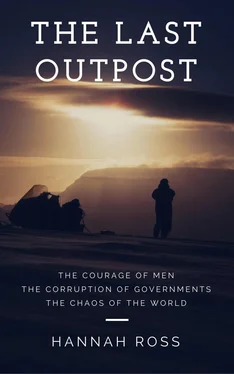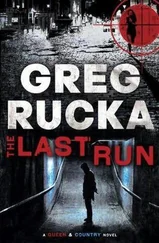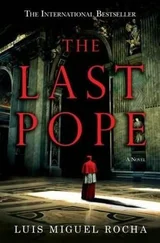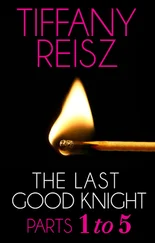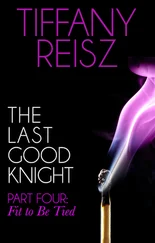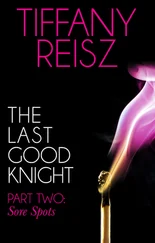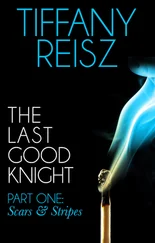“Sure, we take you,” Ri Omrek said. “But you change your clothes,” he said, observing Scott’s flamboyant orange attire with a critical eye.
“Why?” Scott didn’t understand.
“Animals see you from afar, run away,” Ri Omrek explained. “I give you my own clothes,” and he would have proceeded behind the partition to the corner he occupied in his sister’s house, but Ki Tahan stopped him and said a few words.
“Wait, Scott,” she said. “I have better clothes. And you wider than Omrek, they fit you well.”
She went to one of the storage baskets and rummaged in it, retrieving a set of breeches, long tunic, parka and cap, and knee-high moccasins. It was all made of sealskins and furs, sewn together with narrow, tough strings of sinew. Each seam was made twice over, and the entire outfit was a marvel of sturdiness and pliability combined. Scott looked at the clothes and ran his hand over them. The skins were thick, smooth and velvety, the fur of the parka downy and soft to the touch. He didn’t have to ask to whom these had belonged, for there was but one possible answer — Ki Daygan, Tahan’s deceased husband.
“I would be afraid to spoil these,” he said feebly.
Ki Tahan offered a small smile. “Spoil would be a pity,” she said. “I make these myself. Daygan bring me furs, I cure, make into skins and parka. Sew together — long, long winter, I like the work. Next summer, Daygan wear clothes, he proud of me. But clothes, they need to breathe. I not take these out since Daygan…” she shook her head and trailed off. “No one uses them. Egan, he may one day, but he still little. I be glad for you to wear them.”
There was nothing more to say. Scott went behind the partition to change. He wished he had a mirror. For a few minutes, he fumbled awkwardly with the leather thong holding the breeches up. The tunic was easier, and fit him well enough, though Daygan had obviously been a little wider at the shoulders. His moccasins were slightly too large, but not by much, and their pliability made them a pretty good fit. Overall, Scott was surprised at how comfortable he felt. The skins were soft, and the outfit well-cut. Ki Tahan had skilled hands, and it was obvious this was meticulous work. He left his orange suit on Ri Omrek’s bed, fitted the pouch with the portable radio on his waist, and went out into the main space of the hut, carrying the fur parka.
Omrek laughed delightedly and clapped him on the shoulder, and Ki Tahan smiled.
“Turn around,” she asked, and tugged slightly at the hem of the tunic. “Yes, it fits you well. It is too hot for parka here, but you will be glad of it on bay.”
Scott had no doubt of that. As soon as the geysers of the Anai Valley were left behind, the icy breath of Antarctica would hit him in the face in full force.
“Thank you,” he told Ki Tahan solemnly, “it is an honor to wear these.”
Ri Omrek also gave him something else — a short harpoon, with a handle made of the twisted little trees that grew in the valley, and a head of ivory. Scott gripped it uncertainly, weighing it in his hand. The weapon was lightweight and, in skillful hands, probably very efficient. He could not imagine actually using it himself to strike a living creature, but he realized that declining to carry a weapon would crush his dignity in the eyes of the Anai men, and probably in the eyes of Ki Tahan as well. She looked at the harpoon approvingly.
“Good hunting,” she said, embracing her brother and pressing Scott’s arm. “And… be careful,” she added, with the fleeting haunted look of someone who had already sustained an unexpected and heavy loss.
Ri Omrek said a few soft, reassuring words in Anai, and bent to kiss his sister on the cheek. He then tickled his nephew, pried him away from his leg, as little Egan was clinging to him and evidently begging to be included in the party, and motioned for Scott to head out.
“They ready, I think,” he said. “Waiting for us. You come in good time. A day later, and you miss the hunt. Now we set off. You hungry? We have something to eat on the way.”
The hunting party assembled at the edge of the village consisted of about twenty men, from young to old. All were dressed in a similar fashion, and all were carrying leather sacks on their backs, harpoons, throw-spears and larger, heavier spears for close hits, coils of rope made of sinew or grass. There were also two curious-looking, lightweight leather boats, which six men were supporting between them. One of them, Scott noticed with a jolt of foreboding, was Ne Tarveg. The latter looked none too pleased to see him either; he scowled and glared, but said nothing. Several of the other men made laughing, approving comments on Scott’s attire.
“You now look like Anai huntsman,” Ri Omrek said. Scott had to take him at his word.
To his surprise, three young women were also included in the party. He did not immediately notice their sex, for they were dressed like men, and their hair was tightly braided and pulled back.
“I didn’t know women hunt as well,” said Scott.
“They do sometimes, if their blood is not upon them, and they are not with child, or have baby,” Ri Omrek said. “Most choose to stay home, though. Hunt is a thing for men.”
Observing the three women with a quick and furtive glance, Scott came to the unfortunate conclusion that these were clearly not the village beauties. He saw broad figures and coarse features, and though he would not go so far as to call these women mannish or ugly, they lacked something of the regular beauty of the Anai.
More than the men or the women, however, he was arrested by the sight of himself in a still, deep puddle they passed after crossing the stepping-stones of the river (on which, by the way, the moccasins made him surer-footed than his terrain boots ever could have). He saw a man in fur and leather, holding a primitive-looking weapon and sporting a three-day old stubble — failing to shave was so common at McMurdo that it was hardly seen as an omission. He looked quite different from what he had ever seen himself, but it was a good kind of different — and he felt like another man, too, more agile and light-footed and more in harmony with his surroundings than he ever felt in his Antarctic gear.
Ri Omrek nudged him on the shoulder with a laugh, prompting him to go on. “No need to look so much,” he said with a grin. “You look fine. Come, let’s go, or we’ll be last.”
Scott was somewhat apprehensive as to how the Anai clothes would hold up to the freezing cold outside the geyser domain, but he was pleasantly surprised. The sealskins, less bulky and more pliable, insulated just as well as his outer gear. He put on his parka and lowered its fur cap against the dry, freezing wind, and tightened the leather tong that was meant to hold together its upper part. He didn’t fail to notice that each hole the tong was designed to go through was painstakingly trimmed with tiny filaments of leather or sinew, so that it would never fray or stretch.
The bay, which was a couple of hours’ of vigorous walking away, was the ideal hunting spot — sheltered and snug, it served as a good nursery for both seals and penguins. An ice-shelf formed a sort of slide into the ocean waters, convenient for both to use. And the Anai hunting trips, Scott knew, were sparse enough to keep the animal population of the bay largely intact. Had the local seal and penguin colonies dwindled, it would have posed a problem for the Anai, for going on foot to more distant places, and setting camp in the freezing cold for a few days, would hardly be practical.
He saw a flock of emperor penguins on some outcroppings of rock up above, but these birds, though prized by the Anai for their high fat content, were not the current target. The hunters focused on some rocks at a greater distance, where a pack of Weddell seals stretched lazily in the sun. “Good,” Ri Omrek said quietly. “We can get close, I think.”
Читать дальше
